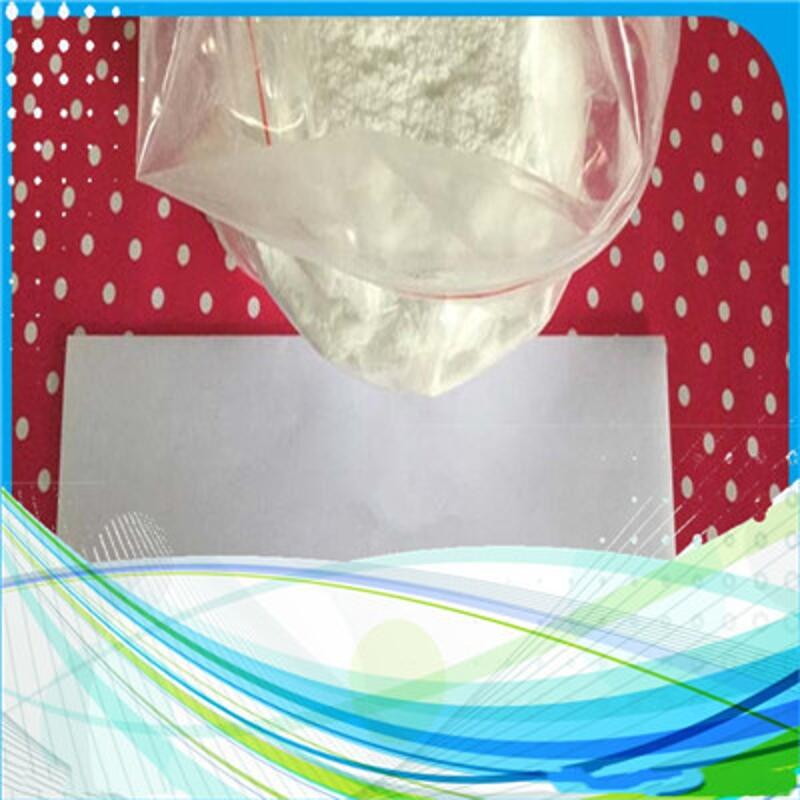-
Categories
-
Pharmaceutical Intermediates
-
Active Pharmaceutical Ingredients
-
Food Additives
- Industrial Coatings
- Agrochemicals
- Dyes and Pigments
- Surfactant
- Flavors and Fragrances
- Chemical Reagents
- Catalyst and Auxiliary
- Natural Products
- Inorganic Chemistry
-
Organic Chemistry
-
Biochemical Engineering
- Analytical Chemistry
-
Cosmetic Ingredient
- Water Treatment Chemical
-
Pharmaceutical Intermediates
Promotion
ECHEMI Mall
Wholesale
Weekly Price
Exhibition
News
-
Trade Service
News on May 21, 2021/bioon.
com" target="_blank">/---The University of Dundee in the UK published an article titled "Kinase drug discovery 20 years after imatinib: progress and future directions" in Nature Reviews | Drug Discovery.
Protein kinases regulate almost all aspects of cell life, and changes in their expression or gene mutations can lead to cancer and other diseases.
Here, the author reviews the remarkable progress made in improving the potency and specificity of small molecule inhibitors of protein and lipid kinases over the past 20 years, leading to the approval of more than 70 new drugs since the approval of imatinib in 2001 .
These compounds have had a major impact on the way we treat cancer and non-cancer diseases.
This article also discusses how to face the challenge of kinase inhibitor resistance and the future of kinase drug discovery
bioon.com" target="_blank">/---The University of Dundee in the UK published an article titled "Kinase drug discovery 20 years after imatinib: progress and future directions" in Nature Reviews | Drug Discovery.
Protein kinases regulate almost all aspects of cell life, and changes in their expression or gene mutations can lead to cancer and other diseases.
Here, the author reviews the remarkable progress made in improving the potency and specificity of small molecule inhibitors of protein and lipid kinases over the past 20 years, leading to the approval of more than 70 new drugs since the approval of imatinib in 2001 .
These compounds have had a major impact on the way we treat cancer and non-cancer diseases.
This article also discusses how to face the challenge of kinase inhibitor resistance and the future of kinase drug discovery
com" target="_blank">Protein kinases regulate almost all aspects of cell life, and changes in their expression or gene mutations can lead to cancer and other diseases.
png" target="_blank">
png" target="_blank">Picture source: doi: 10.
1038/s41573-021-00195-4.
1038/s41573-021-00195-4.
In 2001, the first kinase inhibitor imatinib was approved by the bioon.
com/fda/" target="_blank">FDA , providing a catalyst for an exciting article.
Is protein kinase the main drug target in the 21st century? Imatinib can inhibit Abelson (ABL) tyrosine kinase, which is expressed as a deregulated fusion protein, called BCR ABL.
In almost all cases, chronic myeloid bioon.
com/tags/%E7%99%BD%E8%A1%80%E7%97%85/">leukemia (CML) is caused by chromosome heavy Row, breakpoint cluster region fusion gene encoding protein (BCR) and ABL form the Philadelphia chromosome.
Although fasudil (a rho-dependent protein kinase inhibitor) and rapamycin (a protein kinase TORC1 inhibitor sirolimus) were approved as early as 2001, the development and approval of these compounds No one knows their target protein.
Therefore, imatinib is the first drug developed for specific protein kinases for the treatment of diseases that have yet to be approved.
bioon. com/fda/" target="_blank">FDA , providing a catalyst for an exciting article.
Is protein kinase the main drug target in the 21st century? Imatinib can inhibit Abelson (ABL) tyrosine kinase, which is expressed as a deregulated fusion protein, called BCR ABL.
In almost all cases, chronic myeloid bioon.
com/tags/%E7%99%BD%E8%A1%80%E7%97%85/">leukemia (CML) is caused by chromosome heavy Row, breakpoint cluster region fusion gene encoding protein (BCR) and ABL form the Philadelphia chromosome.
Although fasudil (a rho-dependent protein kinase inhibitor) and rapamycin (a protein kinase TORC1 inhibitor sirolimus) were approved as early as 2001, the development and approval of these compounds No one knows their target protein.
Therefore, imatinib is the first drug developed for specific protein kinases for the treatment of diseases that have yet to be approved.
com/fda/" target="_blank">FDA bioon.
com/tags/%E7%99%BD%E8%A1%80%E7%97%85/">Leukemia
At the time of writing the article highlighted above, small molecule inhibitors of epidermal growth factor receptor (EGFR) tyrosine kinase activity are on the verge of approval.
As predicted, two such inhibitors, gefitinib (also known as Iressa) and Erlotinib (also known as Tarceva) were soon approved for the treatment of non-small cell lung cancer (NSCLC).
These drugs were originally designed to inhibit wild-type EGFR.
In the late 1980s, wild-type EGFR was overexpressed in many cancer types and was associated with a poor prognosis.
However, the authors found that the high sensitivity of bioon.
com/course_video/chang-fei-bian-ma-RNA-yu-zhong-liu959063.
html">tumors to these inhibitors is related to specific EGFR activating mutations, which are present in 10-15% of Western NSCLC patients and 30-50% of Asian NSCLC patients, which ultimately leads to these drugs.
Clinical application in patients with EGFR mutations.
bioon. As predicted, two such inhibitors, gefitinib (also known as Iressa) and Erlotinib (also known as Tarceva) were soon approved for the treatment of non-small cell lung cancer (NSCLC).
These drugs were originally designed to inhibit wild-type EGFR.
In the late 1980s, wild-type EGFR was overexpressed in many cancer types and was associated with a poor prognosis.
However, the authors found that the high sensitivity of bioon.
com/course_video/chang-fei-bian-ma-RNA-yu-zhong-liu959063.
html">tumors to these inhibitors is related to specific EGFR activating mutations, which are present in 10-15% of Western NSCLC patients and 30-50% of Asian NSCLC patients, which ultimately leads to these drugs.
Clinical application in patients with EGFR mutations.
com/course_video/chang-fei-bian-ma-RNA-yu-zhong-liu959063.
html">Tumor
The success of these pioneering compounds, especially the amazing efficacy of imatinib after it entered bioon.
com/course_video/lin-chuang-shi-yan-de-feng-xian-jian-kong239833.
html">clinical trials in 1998 , changed the concept of protein kinase as a drug target.
Many pharmaceutical companies were skeptical of this concept before.
Since then, hundreds of protein kinase inhibitors have been developed and tested on humans.
As of this writing, 76 protein kinase inhibitors have been approved for clinical use, mainly for the treatment of various cancers .
The clinical application of kinase inhibitors has also been promoted by large-scale genomic research, which has identified some cancer subgroups that may be treated with kinase inhibitors.
bioon. com/course_video/lin-chuang-shi-yan-de-feng-xian-jian-kong239833.
html">clinical trials in 1998 , changed the concept of protein kinase as a drug target.
Many pharmaceutical companies were skeptical of this concept before.
Since then, hundreds of protein kinase inhibitors have been developed and tested on humans.
As of this writing, 76 protein kinase inhibitors have been approved for clinical use, mainly for the treatment of various cancers .
The clinical application of kinase inhibitors has also been promoted by large-scale genomic research, which has identified some cancer subgroups that may be treated with kinase inhibitors.
com/course_video/lin-chuang-shi-yan-de-feng-xian-jian-kong239833.
html">Clinical Trials
png" target="_blank">
png" target="_blank">A timeline of important events in the development and approval of kinase inhibitors in the past 20 years since imatinib was approved for the treatment of CML in 2001.
Picture source: doi: 10.
1038/s41573-021-00195-4.
1038/s41573-021-00195-4.
This review is to commemorate the 20th anniversary of the approval of imatinib.
The authors discussed improving the development of potent and specific small molecule tyrosine kinase inhibitors (TKIs) and the resistance to these inhibitors in anti-cancer treatments.
Pharmacological issues, the potential of combination therapy, the clinical efficacy of kinase inhibitors compared with other types of treatments, and the development of kinase inhibitors for the treatment of diseases other than cancer.
Finally, the authors try to predict what the discovery of kinase drugs will look like in the next 20 years.
(Bioon.
com)
The author discussed the improvement of the development of potent and specific small molecule tyrosine kinase inhibitors (TKIs), the resistance to these inhibitors in anti-cancer therapy, the potential of combination therapy, and other types of treatments In contrast, the clinical efficacy of kinase inhibitors and the development of kinase inhibitors are used to treat diseases other than cancer. The authors discussed improving the development of potent and specific small molecule tyrosine kinase inhibitors (TKIs) and the resistance to these inhibitors in anti-cancer treatments.
Pharmacological issues, the potential of combination therapy, the clinical efficacy of kinase inhibitors compared with other types of treatments, and the development of kinase inhibitors for the treatment of diseases other than cancer.
Finally, the authors try to predict what the discovery of kinase drugs will look like in the next 20 years.
(Bioon.
com)
Reference
Philip Cohen et al.
Kinase drug discovery 20 years after imatinib: progress and future directions.
Nat Rev Drug Discov.
2021 May 17.
doi: 10.
1038/s41573-021-00195-4.
Philip Cohen et al. Kinase drug discovery 20 years after imatinib: progress and future directions.
Nat Rev Drug Discov.
2021 May 17.
doi: 10.
1038/s41573-021-00195-4.
Kinase drug discovery 20 years after imatinib: progress and future directions.
Nat Rev Drug Discov.
2021 May 17.
doi: 10.
1038/s41573-021-00195-4.







